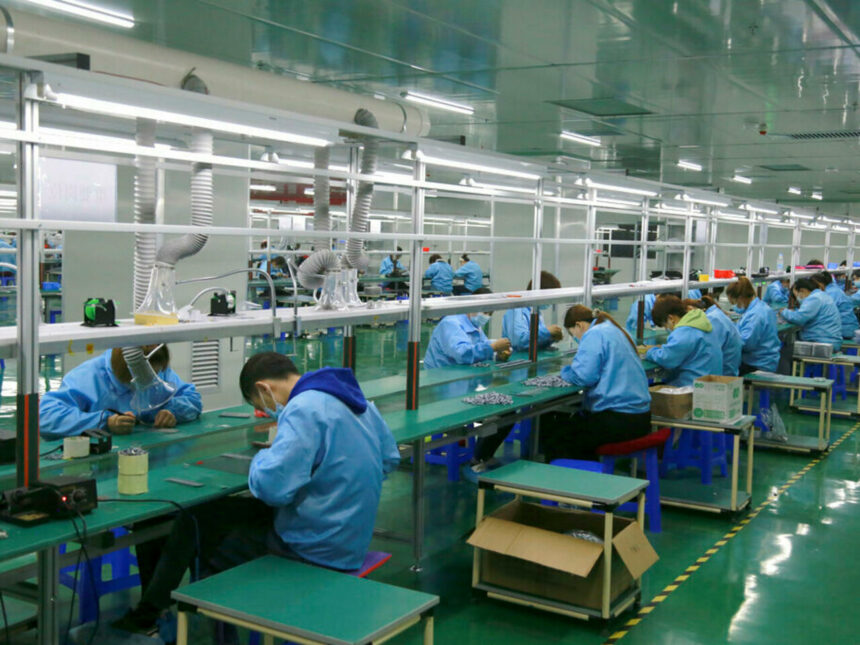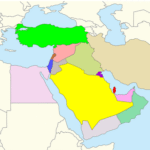The Philippines, often recognized for its robust BPO industry and thriving healthcare sector, is rapidly evolving into Asia’s next big manufacturing hub. While it might not yet have the same global recognition as China or India in manufacturing, the country is making impressive strides in diverse industries ranging from electronics to automotive production. This emerging industrial prowess is positioning the Philippines as a key player in global manufacturing.
The BPO Industry
The country is home to the world’s largest Business Process Outsourcing (BPO) industry, generating an estimated $39 billion in 2024 and employing over 1.3 million people. Filipinos, with their remarkable command of English and strong educational backgrounds, have made their mark in various sectors, from customer service to healthcare support.
Beyond call centers, the BPO sector spans diverse fields like software development, digital marketing, and even Hollywood animation. The country’s talent pool is bolstered by 500,000 university graduates annually, many of whom pursue careers in the thriving BPO industry.
A Surprising Manufacturing Hub
While the Country has long been associated with labor-intensive services like BPOs, the country is quietly establishing itself as a manufacturing powerhouse in several industries. Technological advancements, government incentives, and improved infrastructure are driving this growth.
Despite challenges such as bureaucratic inefficiencies and occasional disruptions due to regional conflicts, the Philippines has found a niche in tech manufacturing, automotive production, and shipbuilding, among others.
Also Read: Shocking Outrage: Trump’s AI Pope Image Sparks Fierce Backlash
Tech Manufacturing: Building Tomorrow’s Electronics
Did you know that some of the crucial components of your smartphones, including iPhones, are manufactured in the Philippines? Major global tech giants like Samsung, Sony, Panasonic, and Sharp have established production facilities across the country. The Philippines is a significant player in the production of semiconductors, microcontrollers, and solar panels.
In addition to consumer electronics, medical equipment, computer peripherals, and LED screens are also manufactured in the Philippines. Canon operates a 30-hectare facility in Batangas, while Epson and Brother have production lines for printers and other peripherals.
Automotive and Aerospace: An Emerging Force
The automotive sector is another area where the Philippines is gaining global attention. Toyota Philippines manufactures critical components such as transmission assemblies, while Ford produces wire harnesses that are exported worldwide. Aerospace companies like Boeing and Airbus also rely on the Philippines for manufacturing parts for aircraft interiors and flight control systems.
Moreover, the Philippines serves as a vital hub for aircraft repair and maintenance in Asia, bolstering its reputation in the aerospace sector.
Shipbuilding: A Global Leader
Shipbuilding might come as a surprise to many, but the Philippines has been the world’s fourth-largest shipbuilding nation since 2010, producing massive container ships, bulk carriers, and tankers. In fact, the Philippines is the only nation besides China, South Korea, and Japan to make it to the top tier of global shipbuilding. Moreover, Filipinos continue to dominate the global maritime workforce, crewing ships across the world.
Fashion and Craftsmanship: The Philippines’ Hidden Gems
The Philippines is also a significant player in fashion and craftsmanship. Many well-known brands, including Coach, manufacture their designer bags in the Philippines, particularly in Pampanga. The country is also renowned for producing world-class guitars, with Cebu being a hub for top-tier musical instruments.
Read More: Abu Dhabi to Host Middle East Film and Comic Con Until 2027
The Growing Semiconductor Sector
The Philippines is rapidly becoming a key destination for semiconductor manufacturing, with companies like Texas Instruments and Pythos Technology investing billions of dollars in facilities located in areas like Baguio and Clark. These regions are emerging as the country’s semiconductor hubs, producing essential components used in everything from digital processing to educational technology.
Government Initiatives and Investments
The Philippine government is actively working to foster manufacturing growth through various initiatives. Executive Orders (EOs) signed in 2023 and 2024, such as EO 18, EO 32, and EO 59, are designed to streamline investment processes, improve infrastructure development, and reduce bureaucratic hurdles. These reforms are attracting tens of billions of dollars in foreign investment, signaling a positive shift in the nation’s industrial future.
The government is also promoting green power generation and smoother travel through public-private partnerships (PPPs). A $106 billion worth of ongoing and approved projects by March 2025, with a focus on renewable energy and transport infrastructure, will undoubtedly support the growth of manufacturing in the country.
The Philippines as a Manufacturing Powerhouse
While still facing challenges in infrastructure and governance, the Philippines is making remarkable progress in becoming a manufacturing hub. The growth of tech manufacturing, automotive production, shipbuilding, and fashion craftsmanship underscores the country’s emerging strength in industrial sectors. With favourable government policies, strategic investments, and an educated, skilled workforce, the Philippines is well on its way to becoming Asia’s next big manufacturing hotspot.
So, if you’re considering opening a manufacturing business, the Philippines should certainly be on your radar. With a rapidly expanding industrial base and a commitment to innovation, the Philippines is set to play an even more crucial role in global manufacturing in the coming years.
Follow 10X Times for more business news.






